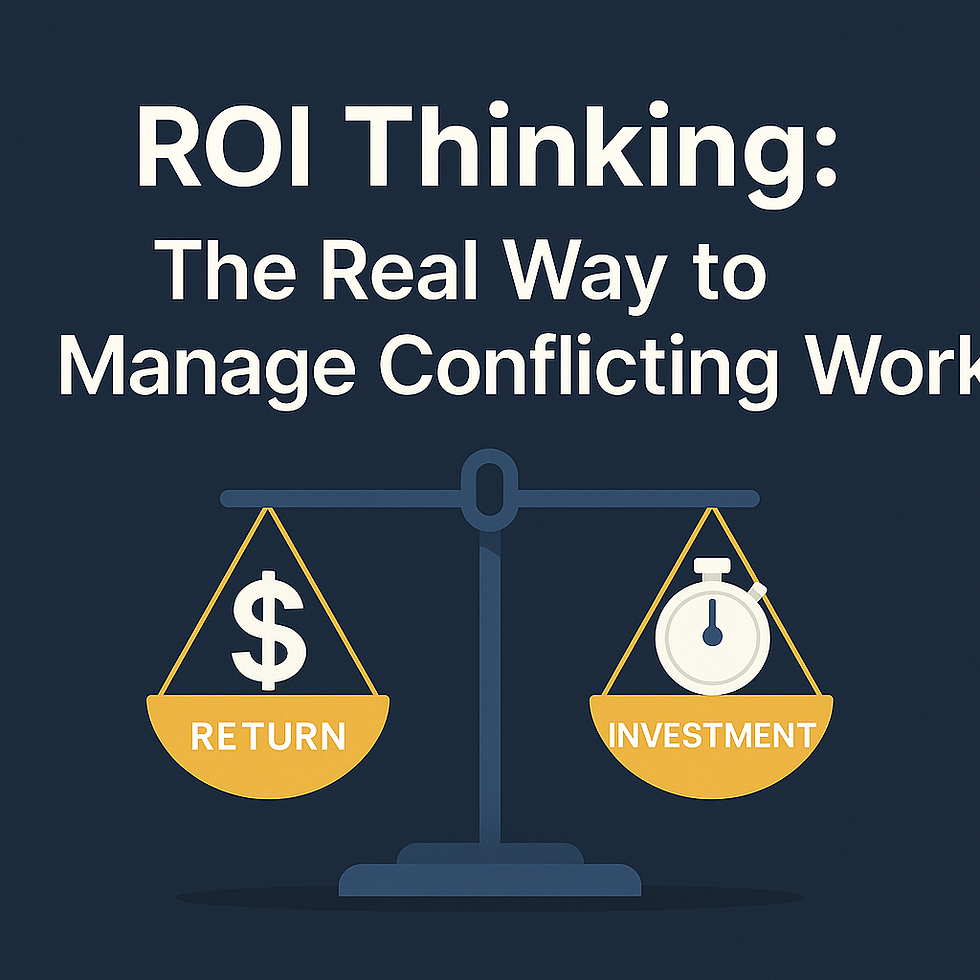Why I Stopped Leading with My Hands - Rethinking Body Language for Deeper, More Intentional Conversations
- Admin
- Apr 12, 2025
- 2 min read

The Conventional Wisdom
Most communication trainers emphasize the power of hand gestures.Use them to appear confident, persuasive, and engaging—they say. And for a long time, I did just that. I believed in the method. I practiced it. I leaned into it.
But recently, I’ve started taking a different path.
A Quiet Shift
Now, I consciously keep my hands still. Not tense. Not forced. Just resting naturally at my sides. I move them only when it truly feels necessary.
This isn’t about eliminating expression. Facial cues—like a raised eyebrow or a curious glance—still play a role. But I’ve realized something subtle but important:
Excessive gestures can make a point feel too forceful.And when you're pushing too hard, you're often not listening enough.
What I Noticed
The more I relied on gestures to drive a point home, the more I found myself anchoring to that point—sometimes even defending it beyond reason. My hands were doing the thinking before my brain had caught up.
So I stopped.
Instead of reinforcing every idea with movement, I started holding space—mentally and physically—for other ideas to enter. I listened more. I responded less automatically. And I noticed something change in my conversations:They became more collaborative. Less performative. More real.
A Different Kind of Presence
What I’ve discovered is that communication should be fluid.Not just in the ideas we speak—but in how we express them.
By keeping my gestures in check, I don’t get trapped in the rhythm of my own argument. I stay open. And when I do use a gesture—when I raise my hand, point, or emphasize a word—it means more. It’s intentional. It’s earned.
It’s Not About Never—It’s About When
This mindset runs counter to conventional advice. But it’s not anti-gesture—it’s pro-awareness.
Hand movements still have a place.They can underscore a message, sharpen a conclusion, or amplify a moment of clarity.
But they should come after the point has formed, not while it's still finding its shape.
The Takeaway
I haven’t abandoned body language.I’ve just shifted the balance.
I don’t lead with my hands anymore.I lead with presence—and let my hands follow, when the moment calls.



Comments